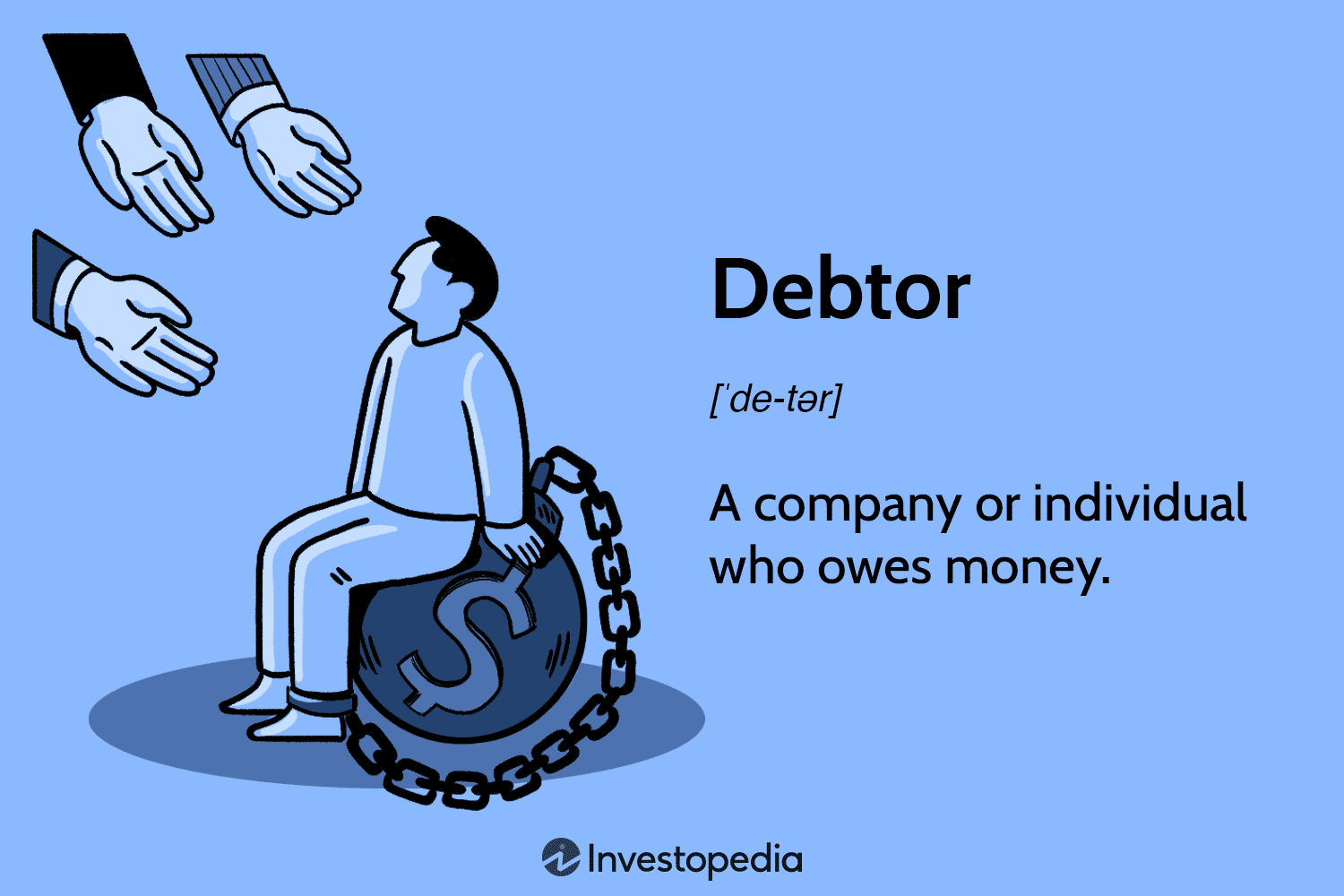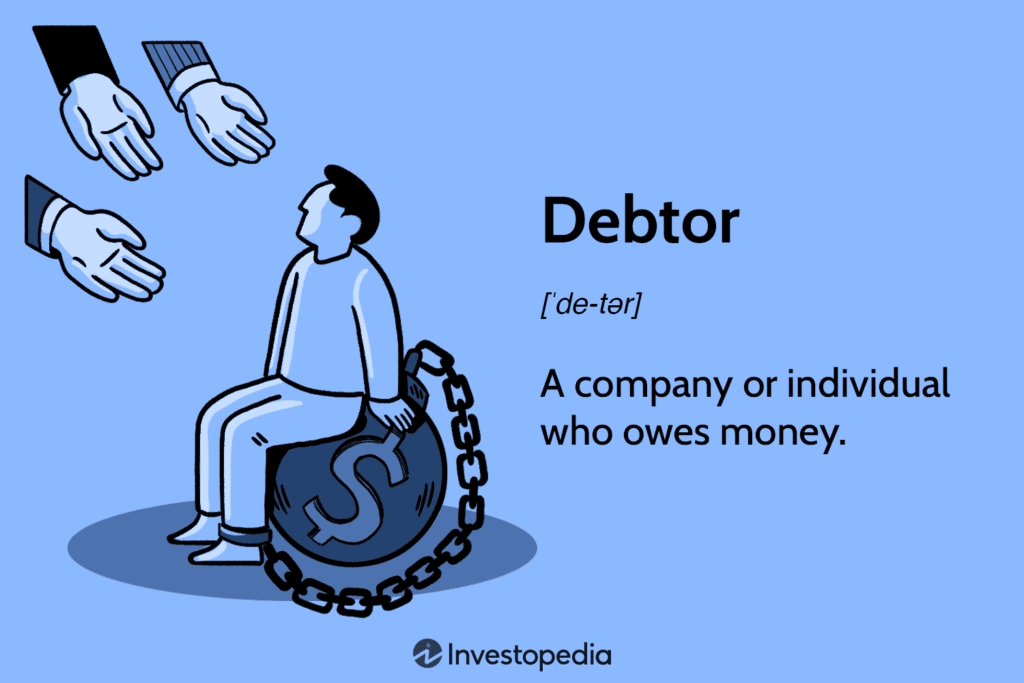Are you one of the ones who owe money to lenders? Don’t worry, you’re not alone! Sometimes, life throws unexpected expenses our way, and we need a little extra help to cover them. Whether it’s a student loan, a mortgage, or a personal loan, many people find themselves in a similar situation. But fear not, because in this article, we’ll dive into what it means to owe money to lenders and explore some tips and strategies to manage your debts effectively.
Now, owing money to lenders might sound daunting, but it’s actually a common part of financial life. Lenders are individuals or institutions that provide us with money when we need it. They could be banks, credit unions, or even family and friends. When we borrow money from them, we become the ones who owe money to lenders. But don’t worry, there are ways to navigate this situation and ensure it doesn’t become a burden.
So, if you’re ready to take control of your financial situation, join us as we explore how to manage debts, create a repayment plan, and develop healthy financial habits. Remember, by understanding the ins and outs of owing money to lenders, you’ll be better equipped to achieve financial stability and peace of mind. Let’s dive in!
Are you one of the borrowers struggling with debt? Find out who owes money to lenders and learn how to manage it effectively. With these essential tips, you can take control of your financial situation:
- Create a budget and track your expenses
- Negotiate with lenders for better terms
- Explore debt consolidation options
- Consider credit counseling or debt management programs
- Make timely payments and avoid taking on new debt
By following these steps, you can begin your journey towards financial freedom.

The Ones Who Owe Money to Lenders: A Comprehensive Guide
Welcome to our comprehensive guide on the ones who owe money to lenders. In today’s world, borrowing money has become a common practice for individuals and businesses alike. Whether it’s for buying a home, starting a business, or simply managing personal expenses, many people find themselves in a situation where they owe money to lenders. In this guide, we will explore the different types of borrowers, their responsibilities, and provide helpful tips on managing debt and improving financial well-being. Read on to become better informed about the world of borrowers and lenders.
The Different Types of Borrowers
When it comes to borrowing money, there are various types of borrowers, each with their own unique circumstances and needs. Understanding these different types can help you navigate the lending landscape better and make informed decisions. Let’s explore some of the most common types of borrowers:
1. Individuals:
Individual borrowers are ordinary people like you and me who need funds for various purposes. This could include borrowing for education, purchasing a car, or even consolidating existing debts. Personal loans, credit cards, and mortgage loans are some of the common financial products used by individual borrowers.
When individuals borrow money, it’s crucial for them to assess their financial situation in terms of income, expenses, and credit score. It’s also important to compare interest rates and loan terms to get the best deal. Borrowers need to understand the terms and conditions of the loan agreement, including the repayment schedule and consequences of defaulting on payments.
To manage debt effectively, individuals should create a budget, prioritize payments, and consider seeking professional guidance if needed. By staying organized and responsible, individual borrowers can improve their financial situation and work towards achieving their goals.
2. Small Business Owners:
The entrepreneurial spirit drives many individuals to start their own businesses. Small business owners often need financial assistance to fund their ventures. Whether it’s for purchasing equipment, hiring employees, or expanding operations, borrowing money is a common practice in the business world.
Small business owners have access to a range of financing options, including business loans, lines of credit, and equipment financing. These borrowers should carefully evaluate their business plans, financial projections, and their ability to repay the borrowed money. It’s important to consider factors such as interest rates, collateral requirements, and any additional fees associated with the loan.
In addition to regular repayments, small business owners should also focus on managing their company’s cash flow effectively. By investing in financial management tools and seeking advice from experts, they can optimize their business operations and ensure timely repayment of debts.
3. Students:
Education is a valuable asset, but it often comes with a hefty price tag. Many students pursue higher education but are unable to afford the costs upfront. As a result, they turn to educational loans to finance their studies.
Students who owe money to lenders are faced with the dual responsibility of managing their studies and repaying their loans. It’s important for them to explore all available options, such as scholarships, grants, and work-study programs, before resorting to borrowing. They should also consider the interest rates, repayment terms, and any potential grace periods associated with student loans.
Students can effectively manage their debt by creating a budget, minimizing discretionary spending, and exploring opportunities for loan repayment assistance. Additionally, they can pursue part-time jobs or internships to generate income that can be used towards loan payments.
Understanding Loan Repayment and Debt Management
Managing debt and repaying loans is crucial for borrowers to maintain a healthy financial standing. It’s important to understand the various aspects of loan repayment and adopt effective debt management strategies. Let’s delve into the key factors to consider:
1. Prioritizing Repayments:
When you owe money to lenders, it’s essential to prioritize your loan repayments. Different loans may have varying interest rates and terms, so it’s important to allocate funds to paying off higher-interest debt first. By focusing on high-interest loans, you can minimize the overall interest paid and accelerate the debt repayment process.
Creating a repayment plan and setting aside a fixed amount each month for loan payments can help you stay organized and ensure timely repayments. It’s also beneficial to explore options such as automatic payments or debt consolidation to simplify the repayment process.
2. Communicating with Lenders:
If you find yourself struggling to make repayments, it’s crucial to communicate openly and honestly with your lenders. Ignoring the problem or avoiding communication will only make matters worse. Many lenders have hardship programs or options for modified repayment plans that can provide temporary relief.
By reaching out to your lenders and explaining your situation, you may be able to negotiate alternative arrangements that make it easier for you to manage your debt. It’s important to remember that lenders want to work with borrowers who are proactive and willing to find solutions.
3. Seeking Professional Assistance:
If you find yourself overwhelmed with debt and unable to navigate the repayment process, seeking professional assistance can provide valuable guidance. Credit counseling agencies, financial advisors, and debt consolidation services can help you assess your financial situation, negotiate with lenders, and create effective strategies to manage debt.
Professional assistance not only helps you navigate the complexities of debt management but also provides emotional support during challenging times. They can educate you about different debt relief options and guide you towards making informed decisions that align with your financial goals.
Tips for Improving Financial Well-being
While owing money to lenders comes with its challenges, it’s essential to focus on improving your overall financial well-being. Here are some tips to help you along the way:
1. Build an Emergency Fund:
Having an emergency fund can provide a safety net during unexpected financial situations. Aim to save three to six months’ worth of living expenses in an easily accessible account. This can help you avoid relying solely on credit during emergencies and prevent further debt accumulation.
2. Create a Budget:
A budget is a powerful tool that can help you allocate funds wisely and keep track of your financial activities. Take the time to analyze your income and expenses, establish spending limits, and prioritize savings and debt repayments. By sticking to a budget, you can make better financial decisions and gain control over your money.
3. Improve Financial Literacy:
Financial literacy plays a crucial role in empowering individuals and businesses to make informed financial decisions. Educate yourself about personal finance, budgeting, credit management, and investments. The more knowledgeable you become, the better equipped you will be to manage your finances effectively and make sound financial choices.
In conclusion, owing money to lenders is a common situation that many individuals face. By understanding the different types of borrowers, prioritizing repayments, and adopting effective debt management strategies, you can successfully navigate your financial obligations. Remember to communicate with your lenders, seek professional assistance when needed, and focus on improving your overall financial well-being. With dedication and responsible financial practices, you can pave the way for a brighter financial future.
Key Takeaways: Ones Who Owe Money to Lenders?
- When someone borrows money from a lender, they become responsible for repaying it.
- If you owe money to lenders, it’s important to have a plan in place to repay the debt.
- Lenders may charge interest on the borrowed amount, increasing the total amount owed over time.
- Failing to repay your lenders can result in negative consequences, such as damage to your credit score or legal action.
- Seeking professional help, like credit counseling or debt consolidation, can be beneficial for managing and paying off your debts.
Frequently Asked Questions
Are you wondering about the intricacies of owing money to lenders? Here, we’ve answered some common questions to help clarify the topic.
What happens if I can’t repay my loan?
If you are unable to repay your loan, it can lead to serious consequences. Your lender may start with late payment fees or increased interest rates. If the situation persists, they may report the delinquency to credit bureaus, which could negatively affect your credit score. In some cases, lenders may pursue legal actions such as wage garnishment or seizing assets to recover the outstanding debt. It is crucial to communicate with your lender and explore potential solutions, such as loan modification or debt consolidation programs.
Remember, ignoring the problem will only make it worse. Seek assistance from credit counseling agencies or financial advisors who can guide you through the process of managing your debt.
Can I negotiate with my lender for better terms?
Yes, it is possible to negotiate with your lender for better terms, especially if you are struggling to repay your loan. Start by reaching out to your lender and explaining your situation. They may be willing to offer alternatives, such as lower interest rates, extended payment plans, or even debt settlement options. Keep in mind that lenders may require evidence of financial hardship before considering these options. It is helpful to gather documents like bank statements, pay stubs, or tax returns to support your case.
Remember, lenders are more likely to negotiate if they believe it will increase the chances of repayment. Be prepared to provide a compelling case for why they should consider modifying the loan terms.
How can owing money to lenders affect my credit score?
Owing money to lenders can have a significant impact on your credit score. Late or missed payments can lower your credit score, making it difficult to obtain future loans or credit cards. Additionally, lenders may report delinquent accounts to credit bureaus, which can stay on your credit report for up to seven years. This negative information can make it harder for you to secure favorable interest rates or even rent an apartment. It’s essential to make timely payments and communicate with lenders to avoid damaging your credit score.
If you find yourself struggling with debt, consider seeking professional advice to help you manage your finances and work towards improving your credit score.
What are some options for repaying my debts if I’m struggling financially?
If you’re struggling financially, there are several options to consider for repaying your debts. One option is to create a budget and carefully manage your expenses, prioritizing debt repayment. Another option is to explore debt consolidation, which involves combining multiple debts into a single loan with lower interest rates. Debt settlement is also an alternative, where you negotiate with lenders to pay off a portion of the debt in exchange for the remaining balance being forgiven. Bankruptcy should be seen as a last resort, as it has long-term consequences.
It is important to seek professional advice from credit counseling agencies or financial advisors who can guide you through the available options and help you choose the best path for your specific circumstances.
Can I be sued if I owe money to lenders?
If you owe money to lenders and fail to make payments as agreed, they may pursue legal actions against you. The lender has the right to sue you to recover the outstanding debt. If they win the lawsuit, they may obtain a judgment that grants them the authority to collect the debt through various means. This can include wage garnishment, seizing assets, or obtaining a lien on your property.
It is important to note that laws and processes vary by jurisdiction, and it is advisable to seek legal advice to understand your rights and responsibilities when dealing with debt-related lawsuits.
A Payday Lender Is Telling Me I Owe Them Money!
Summary
If you borrow money from someone, you have to pay it back. That’s called owing money. Sometimes people borrow money from banks to buy houses or cars. But it’s important to remember that borrowing money means you have a responsibility to pay it back.
Lenders are the people or companies that give you the money. They trust you to pay it back on time. If you don’t, they may charge you extra money called interest. So, it’s always best to be responsible when you owe money to lenders.

